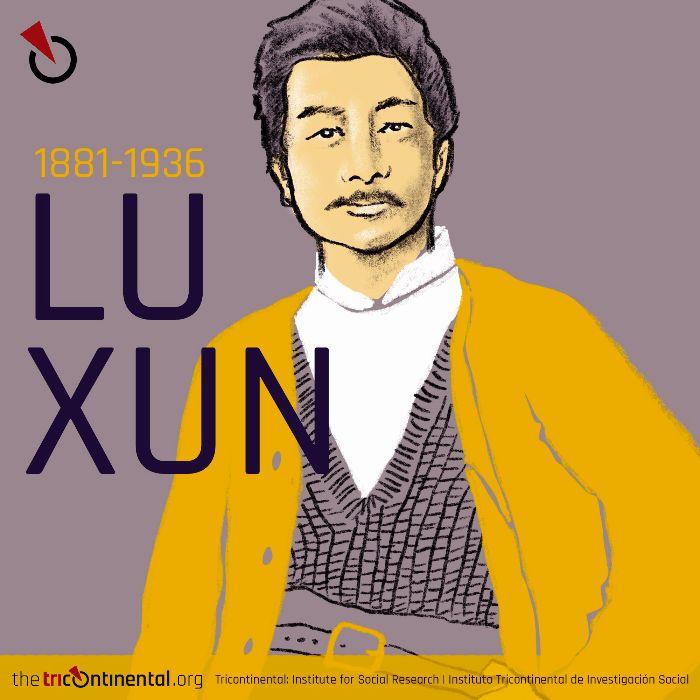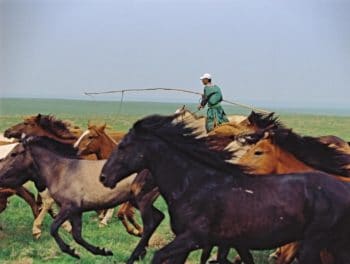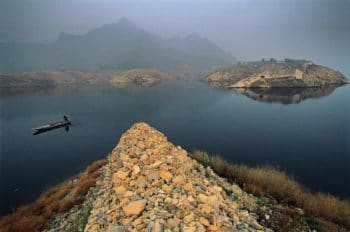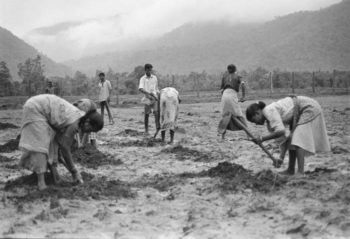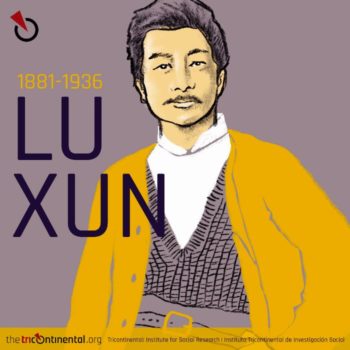Dear Friends,
Greetings from the desk of the Tricontinental: Institute for Social Research.
The largest delegation from outside Russia at the St. Petersburg International Economic Forum in early June came from China. The Chinese team was led by the country’s President, Xi Jinping. In this 23rd Forum, Mandarin joined Russian and English as one of the languages on signs and in conversations. Xi and Russia’s President Vladimir Putin seemed comfortable with each other, the bonhomie between the two states clear. During the Forum, the two countries hosted a gala concert to celebrate the seventieth anniversary for the re-establishment of diplomatic ties between China and Russia. Putin said that the links between the two countries have reached an ‘unprecedented level’, with deals struck for trade and military alignment.
Why have Russia and China cemented this new arrangement?
First, they have been brought together by the long-term push by the United States and its allies to prod at the sovereignty of both China and Russia–whether through the expansion of the North Atlantic Treaty Organisation (NATO) towards Russia’s borders or by the US’ aggressive naval strategy from Japan to Taiwan. This prodding has led to a harsh sanctions regime against Russia, which has found itself isolated from European markets. This has led Russia to seek closer economic ties with China.
Second, the United States has attempted to get China to surrender its economic advantages to U.S. firms, which has led to the ongoing trade war (see our Dossier no. 7, August 2018, on The Imperialism of Finance Capital and ‘Trade Wars’). China has long sought an escape from its close links to the U.S. market. One of these passages out of the U.S. market has been the Belt and Road Initiative (BRI) and the String of Pearls initiative that runs across Eurasia and the Indian Ocean. The BRI has relied upon the Central Asian states, where Russia continues to have a strong influence, and on West Asia, where the Russian intervention in Syria showed Russia’s willingness to act—serendipitously—on behalf of Chinese interests.
Fear of U.S. action and the need for a Eurasian regional economic strategy is what brings these two major states together.
After the fall of the USSR, the West tried to bring Russia into its orbit. The G7 welcomed Russia into its ranks in 1997 as European and U.S. capital made its entry into Russia and Eastern Europe. That same year, thirteen oligarchs led by Anatoly Chubais–and bolstered by the United States–stole the election on behalf of Boris Yeltsin from Gennady Zyuganov of the Communist Party. Seven of these thirteen oligarchs then carved out the Russian economy for their benefit and for the benefit of their Western partners. The country was looted, its self-esteem weakened. Putin emerged from this crucible, with a pledge to revive Russia’s fortunes. Russia’s economy relies upon the export of raw materials, which has left it vulnerable to its external markets–mainly Europe. Attempts by the West to install its government in Ukraine led to the expulsion of Russia from the G8 and to sanctions on the country. Russia, which had sought to be part of Europe since the fall of the USSR, now turned eastwards towards Eurasia and–in particular–towards China.
The timing could not have been better. China had bet its new economic policy from 1978 on the markets of the West, with China becoming the workshop of the world. The ‘reform era’ delivered millions of educated Chinese workers to the globalised economy. Investment of capital and technology flooded into China, from where goods swept the world–but mainly the West. When the general financial crisis took place in 2007-08, China shivered. Its reliance upon the Western markets left it greatly vulnerable. Seeking to break from this reliance on Western markets, China experimented with transfer payment schemes within the country in order to increase domestic demand and began to develop new markets along the monumental Belt and Road Initiative that spans Eurasia, but also has reach into Africa and South America. Russian participation in this initiative is essential, since Russia continues to have close links with Central Asian states and since Russia is the key partner for China in Iran, Syria and Turkey. For a look at the current sanctions regime against Iran and how it has impact Chinese and Russian relations in the region, stay tuned for our upcoming eighteenth dossier in August, Iran Will Not Forget.
For the past two decades, China has openly called for the creation of a multilateral world order to balance out the unilateral order produced by the West after the fall of the USSR. In 2001, the Chinese President at the time, Hu Jintao, said that ‘multipolarity [duojihua] constitutes an important base in Chinese foreign policy’. The U.S. war on Iraq (2003) and the general financial crisis (2007) dented the hegemony of the West. It was in the aftermath of these two events that Brazil, Russia, India, China, and South Africa formed BRICS (2009). The main agenda for the bloc was to push for multilateralism–namely to take advantage of the weakness of the West to assert themselves. But their own programme was limited, a Southern version of neo-liberalism with no alternative institutional basis, ideological worldview, or military power at its feet. The rightward drift in Brazil, India, and South Africa soon made the BRICS formation less cohesive. It was in this context that the alliance between China and Russia took centre stage.
The signal of seriousness can be found in the 2008 solution by China and Russia of their decades-long border dispute. That 4,200-kilometre border is now completely delimited. Regular military exercises began, which culminated in Vostok in 2018, where a third of Russia’s army trained alongside Chinese troops. Alongside the military training and strategic alignment has come arms deals, including upgrades from the Russian side to China’s People’s Liberation Army and now Chinese ships and artificial intelligence to Russia.
But there are some weaknesses in the Sino-Russian alliance. China imports mainly raw materials from Russia–76% of the exports are Russian oil and related products, while 8% of the exports are wood and paper products. China now buys a quarter of Russian oil, thanks to the new oil pipeline from East Siberia into China and to the US-European sanctions on Russia. A new natural gas pipeline is in the works, which will only increase this trade. China, meanwhile, exports mainly finished goods–automobiles, consumer goods, and machinery–to Russia. This imbalance is sharpened by the low rates of Chinese investment in Russia. Part of the debate in St. Petersburg was around these issues, sharpened by Chinese fears of the business environment in Russia. These vulnerabilities will provide an opening for the West.
In 2012, the U.S. National Intelligence Council’s report noted that ‘by 2030, no country–whether the US, China, or any other large country–will be a hegemonic power’. What the U.S. intelligence officials forecast is the ‘diffusion of power’ amongst states, with democracy as the vector for this transfusion. But the U.S. has not wanted to accept this new reality. Its policy makers remain trapped by the 1992 Defence Planning Guidance (authored by Dick Cheney), which noted that the U.S. ‘must now refocus on precluding the emergence of any potential future global competitor’.
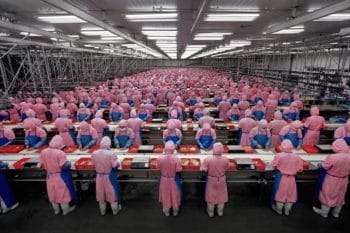
Edward Burtynsky, Manufacturing #17, Deda Chicken Processing Plant, Dehui City, Jilin Province, 2005.
Trump’s clumsy trade war is part of this policy–with the U.S. spear pointed at the Chinese technology giant, Huawei. The U.S. knows that the main comparative advantage for its economy is Silicon Valley as well as its dominance over intellectual property rights. However, in the arena of this new technology, centred around 5G, Huawei is in the lead (followed by Sweden’s Ericsson and Norway’s Nokia). Trump’s war against Huawei is not as irrational as it seems (as I note in this week’s column). His administration—like others before it—has used as much political pressure as possible to constrain the growth of technology in China. Accusations of the theft of intellectual property and of close ties between the firms and the Chinese military are meant to deter customers for Chinese products. These accusations have certainly dented Huawei’s brand, but they are unlikely to destroy Huawei’s ability to expand around the world. Huawei claims that two-thirds of 5G networks outside of China use its products. The Defence Innovation Board of the U.S. wrote recently that ‘The country that owns 5G will own many of these innovations and set the standards for the rest of the world. For the reasons that follow, that country is currently not likely to be the United States’.
Threats and war are instruments to preclude–as Cheney wrote in 1992–‘any potential future global competitor’. This is the essence of imperialism. That is why this category is so significant if we want to have an accurate understanding of the situation in the world. The new tactics of imperialism, as we show in Dossier no. 17, Venezuela and Hybrid Wars in Latin America, includes the concept of the hybrid war. Imperialism today is not limited to brute force, but rather employs a range of strategies that seek to impose ‘full spectrum dominance’ over all of society, undermining not only the nation’s sovereignty to make economic and military decisions for its own benefit, but also infiltrating the ‘minds, hearts, and bodies’ of its people; the very way that people understand themselves and the world around them. The rot of war, as I write in this column, is not irrational but is precisely the last refuge of imperialism.
Brazil, India, and South Africa remain engaged in the BRICS project, but less centrally than a decade ago. This has to do with the class character of the ruling bloc in each of these countries, where the needle has decidedly gone rightward. These states have become the subordinate allies of the United States. To shift their geo-political orientation requires a shift in the class character of the ruling bloc. Dossier no. 18 is an interview with K. Hemalata, the President of the Centre for Indian Trade Unions, who offers pathways for the Indian working-class and peasantry to assert their own project over the Indian republic. Key here is the question of how to organise the informal workers. Celina della Croce, Coordinator at Tricontinental: Institute for Social Research, draws out the implications of the interview in her report.
The informal BRICS meeting at the side lines of the Osaka G20 summit produced a declaration that retains the main thrust of earlier BRICS deliberations (multilateralism, the need for new institutions, more inter-state democracy), but it introduced few of the key themes of our current moment–such as the harsh unilateral sanctions that the United States has imposed on a number of countries– from Iran to Venezuela–and the US’ threats of war. The BRICS summit will take place in Brasilia (Brazil) in November. It is unlikely to advance its agenda.
‘Hope’, the great Chinese writer Lu Xun wrote, ‘is like a road in the country; there was never a road, but when many people walk on it, the road comes into existence’.
Warmly, Vijay.

